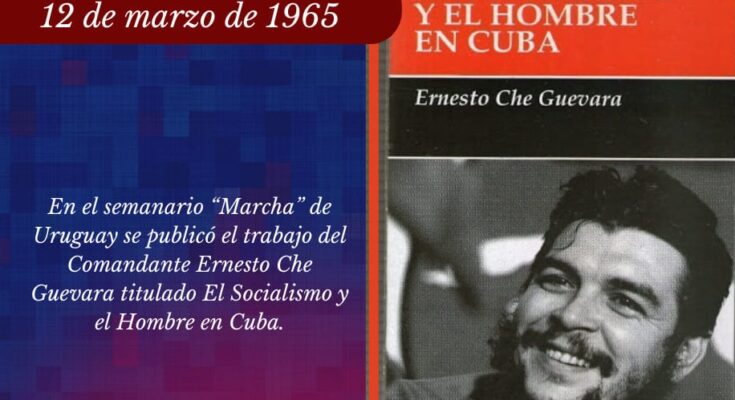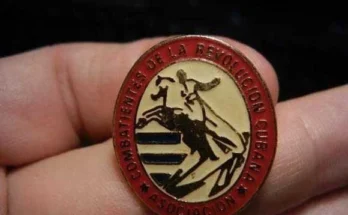On March 12, 1965, appeared for the first time El Socialismo y el Hombre en Cuba, a work in which Comandante Ernesto Che Guevara analyzes the peculiarities that men and women should have in order to put into practice the construction of that social-political process.
Published in the weekly magazine Marcha, of Montevideo, Uruguay, Che exposes in this masterful work transcendental aspects of the period of the construction of the socialist society in the Island and evidences equally in eloquent form the importance that he attributed to the questions of political and ideological character associated directly to the motivations and reflections of the human beings.
In this booklet of permanent actuality in the Cuban context, Che Guevara explains how a vanguard was the catalyzing agent that created the subjective conditions to achieve victory, and after the triumph of January 1959, the masses began to play the decisive role and details the process of full identification of the people with the maximum leader, Fidel Castro Ruz, due to the complete interpretation that he has made of their aspirations.
The author emphasizes the importance of revolutionary consciousness, of the emergence and development of a new man and assures that “In this period of construction of socialism, we can see the new man being born. His image is not finished yet; it could never be finished, since the process runs parallel to the development of new economic forms”
He also emphasized that work should acquire a new condition, since the commodity man would cease to exist to install a system that grants a quota for the fulfillment of social duty; in this work he wrote about the importance of the work to be developed by political organizations, especially by the one that groups the revolutionary vanguard, in other words, the Communist Party of Cuba.





